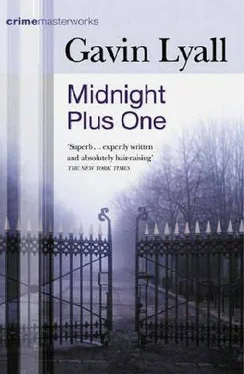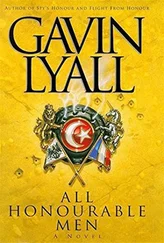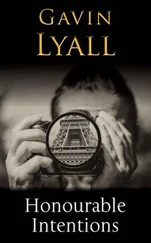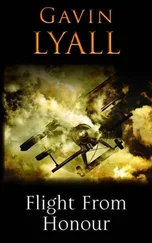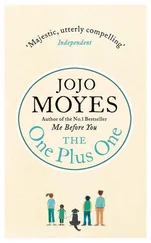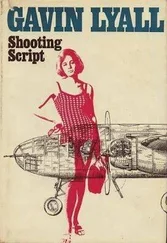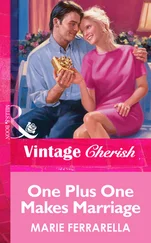'But they weren't interested: that was too damn practical. They wanted to be artists. Wanted to forget they were making pistols.' He stared across at the General. 'So they ended up making your stuff. It's an expensive sort of wallpaper – but the wall's where they belong.'
I'd been half expecting the General to burst into flames the moment Harvey gave him the chance. But all he did was nod very slowly and rasp: 'A refreshingly new point of view, young man. Why d'you hold it so strongly?'
Harvey shrugged and frowned and said slowly: 'Pistols are for killing people. Nothing else – there's no other point to them. Maybe I just don't like to see that wrapped up in ' fancy dress.'
The General chuckled softly and the damp eyes fixed on Harvey. 'If you get to my age – which I doubt, in your job -you'll know that everybody has to wrap it up somehow. You must have your own way, already.'
Harvey went very still.
I shunted myself to my feet. 'If we rehearse much longer, we'll start overplaying our parts. Let's get started.'
Morgan began helping people into their coats. The General sat where he was, and I stood where I was. The eyes swivelled to me. 'Well, Mr Cane,' he said quietly, 'was I right about Mr Lovell – the way he wraps it up? I saw him with his glass…'
'You were right.'
'Difficult, Mr Cane. Difficult.' The old head trembled on its stalk. 'And how do you do it?'
'Me? I go around believing I'm in the right.'
'Ah. You know – I'd say that was even more difficult. One so easily comes unwrapped.'
I nodded. 'And how do you do it, General?'
He sank carefully back in his seat and his eyes closed slowly. 'As Mr Lovell said: with gold wire and fancy engraving. I find it lasts.'
'I hope so, Brigadier.'
The hoods slid open. 'You noticed my little conceit, did you?'
'One rank up from Colonel is Brigadier-General – in your day. They dropped the "General" from it in the 'twenties some time.'
'True. But the "General" was still there when I got it, so…' the eyes closed again. 'It helps the wrapping.'
'Goodbye, General.'
'He didn't say anything. I nodded and picked up my jacket and raincoat and followed the rest out. Morgan led the way to the back lift. We went straight down to the basement garage.
The moment! saw the car I knew we were safe as far as the frontier. To forget a car like that, the cops would have to be a lot more stupid than even I was ready to believe. Apart from anything else, they must have had over thirty years to get to know this car.
It was a 1930 Rolls-Royce Phantom II 40-50 with a seven-seat limousine-de-ville body! I didn't know all those names and numbers right then: Morgan told me. All I could see then was something like the Simplon-Orient Express mated with a battleship and on four wheels. It was sharing the garage with a couple of modern Rolls, a new Mercedes 600, a Jaguar Mark 10, and a Cadillac. It made the whole bunch look like mere transportation.
It had one other little distinction: the damn thing looked as if it was made of engraved silver. In the dull basement light it glowed like next Christmas.
At second glance, I saw it was just aluminium: un-painted aluminium, milled in small circles so that it caught the light from every angle, and studded with lines of ground-down rivet heads. Five minutes before, I'd have said aluminium hadn't got quite that Rolls touch. I'd have been completely wrong. It had exactly the Rolls touch: it looked expensive, simple, and tough, the way the best fighter planes look, the way a good rifle looks, the way the first real space ship will look.
Beside me, Harvey said softly: 'Jesus.' Then he nodded at the rear door. 'I guess he was worried it didn't look individual enough.'
I hadn't noticed it before: a painted crest, about the size of a spread hand, on the door. At first I couldn't work it out, then it clicked. The green-and-white shield of Vaud canton, with the rose and laurel wreath of the Intelligence Corps painted on top – the 'rampant pansy resting on its laurels' as the rougher Departments of the Army used to call it. I grinned. It was the only fancy thing about the whole car; the General hadn't been able to resist wrapping it up a little.
Morgan stepped forward and swung open the door. By now he had a black, peaked cap on his head instead of the orange tweed accident. He looked the perfect chauffeur.
Maganhard and Miss Jarman climbed in – and I mean climbed. The bottom was high off the ground, and the top was high off the bottom: you couldn't see over it without standing on the running board.
Harvey walked past and up to the long square-cut bonnet, rapped on it, and called: 'You down there in the engine-room – this is the Captain speaking. I want flank speed on both engines.' He walked back and got a look from Morgan that you normally only see at bayonet practice.
Harvey nodded to him, said: 'And damn the torpedoes, too,' and climbed in.
I asked: 'Will we have to stop for petrol? '
Morgan did a little mental arithmetic, then said: 'I don't think so, sir. We have twenty gallons – and another two in a tin in the boot, if we need it.'
That reassured me. I didn't much want to start showing our faces at petrol stations. I climbed in after Harvey and the door closed behind me with a small solid click.
We rolled up into the daylight with all the stately dignity of the Queen Mary going down the Solent. On a hearse heading for an expensive funeral.
The time was half past two.
We turned north, back through most of Montreux, then right into a zigzag up the hillside to Blonay and over to meet the main road for Fribourg, across the corner of the mountains.
Harvey sat beside me on my right, sharing a jump seat that folded down from the partition between us and Morgan. We faced forwards and the back of our seat almost restricted Maganhard's leg-room. But not quite – not in that car.
As soon as we were rolling, Harvey started a careful check-up on the inside of the car: the plate-glass partition between him and the back of Morgan's neck, the roof, the door beside him.
I wasn't worried about the local citizens seeing it wasn't the General in the back seat: where Maganhard and Miss Jarman were sitting, it was too dark to recognise your own wife, even if you'd wanted to. There were no side windows behind the rear doors, and the car went back nearly four feet from there. The small back window was heavily smoked glass, and even the rear door windows were tinted. The car had the atmosphere of the smoking-room from one of the richer London clufa, and it was furnished to match.
The seats were of thick brown leather, the woodwork was dark mahogany, the handles and knobs of scratched, worn brass that looked much more solid than brand-new brass ever did. The carpet and the silk panelling on the roof had the same tone: a dull gold. None of it looked smart and new, but it had never been intended to. It was supposed to look worn – and as if it would never wear out.
After a while, Maganhard said: 'This seems a very distinctive car for a man like the General. He must be a man who makes enemies; I would have expected something less obvious.' He was obviously feeling smug about his own idea in choosing a Citroën.
I'd been trying to work that out for myself, and reckoned I had. 'It's protection – of a sort,' I said. 'Once somebody's really trying to kill you, you can change your car every month and it won't fool them. This way he attracts as much attention as he can – and a pro killer won't shoot at a man in a spotlight. I suppose it's the same thing as living in one part of one hotel for forty years: anybody knows where to find him but theydon't know how to get through five floors of a big hotel once they've blown his head off. In a private house up in the hills, he'd be a pushover.'
Читать дальше
